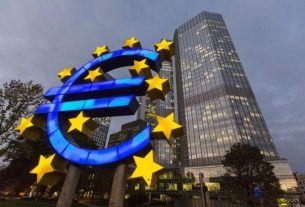The Commission announced that it has awarded nearly €166 million, via the European Innovation Council (EIC) Accelerator Pilot, to 36 companies set to combat the coronavirus pandemic.
In addition, over €148 million will be granted to another 36 companies set to contribute to the recovery plan for Europe, bringing the total investment from Horizon 2020, the EU’s research and innovation programme, to €314 million in this round.
Mariya Gabriel, Commissioner for Innovation, Research, Culture, Education and Youth, said: “The enormous talent and breakthrough ideas of innovative European companies give us hope. Our increased support to the European Innovation Council will unlock their potential so that we can better tackle the coronavirus and support our recovery. The EIC responded quickly to the coronavirus crisis and demonstrated the agility and impact of EU funding.”
The selected 36 companies that will contribute to the fight against the coronavirus will work on pioneering projects, such as on expanding the production of bio-decontamination wipes, developing ventilation monitoring systems that provide first aiders with real-time feedback on the quality of the ventilation given to the patient, developing an antibody platform to treat severe cases of infection, and many more. Furthermore, 139 companies tackling the coronavirus that could not receive funding in this round due to budget limitations have received the newly introduced COVID-19 Seal of Excellence, in recognition of the value of their proposal and in order to help them attract support from other funding sources.
An additional 36 companies, set to support the recovery plan for Europe, will work across a multitude of sectors and projects, which include for example the development of stronger and taller wind turbine towers made from wood modules, with the potential to massively reduce wind energy costs, an organic fertilizer production system, and a blockchain-based solution for sustainable recycling practices of manufacturers. And, another 679 Seals of Excellence were awarded to high-quality proposals who passed the EIC funding criteria, but could not be funded due to limited budget.
A record number of almost 4000 start-ups and small and medium businesses (SMEs) applied to the EIC Accelerator pilot in March, of which over 1400 proposed innovations relevant to the coronavirus outbreak. This is why an extra €150 million was recently allocated to this funding round, bringing the combined total to over €314 million. The start-ups and SMEs selected for support come from 16 countries, including 12 EU Member States, the UK and 3 associated countries.
Background
Out of the €314 million of EIC funding awarded, €174 million will be in the form of equity investments. Since its introduction in mid-2019, the EIC Accelerator pilot has offered the option of direct equity investments, up to €15 million, in addition to the grant support, up to €2.5 million. More than 10,000 start-ups and SMEs have applied so far with a total financial request for of over €26 billion. Of the 72 companies awarded support today, 46 are due to receive equity support.
Equity investments are subject to an in-depth due diligence exercise, and will be managed by the future EIC Fund, which will actively seek out co-investors. EIC supported companies also benefit from a wide range of coaching, mentoring and advisory/business acceleration services. For the first time these services will be offered to COVID-19 Seal of Excellence companies.
The EIC support to breakthrough ideas tackling the coronavirus is part of the joint EU effort to overcome the crisis. On 4 May, the Commission hosted a Coronavirus Global Response pledging event, where €9.8 billion have been raised so far. The Commission pledged €1.4 billion during this pledging event, of which €1 billion comes through Horizon 2020 and is aimed at ensuring collaborative development and universal deployment of diagnostics, treatments and vaccines for the coronavirus. In the end of May the Commission announced the next steps in the Coronavirus Global Response, namely the launch of a new campaign with the international advocacy organisation Global Citizen, “Global Goal: Unite For Our Future”, that will culminate in a Global Pledging Summit on 27 June.
Furthermore,the Commission has recently put forward its proposal for a major recovery plan for Europe. To ensure the recovery is sustainable, even, inclusive and fair for all Member States, the Commission is proposing to create a new recovery instrument, Next Generation EU, embedded within a powerful, modern and revamped long-term EU budget. As part of the recovery instrument Next Generation EU, a €13.5 billion increase of the Horizon Europe budget is proposed that will be used to provide European support for health and climate-related research and innovation activities, including for breakthrough innovations by startups and SMEs.
ec.europa.eu
pixabay


















